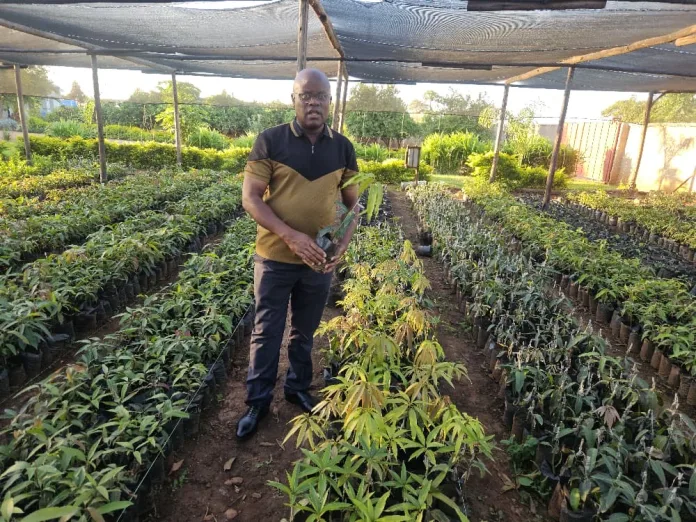Bulawayo, (New Ziana)- The Zimbabwe government plans to roll out a nationwide fruit tree initiative with the goal of planting 18 million by the year 2030.
The program aims to distribute at least 10 fruit trees per household across the country to enhance food security through increasing access to nutritious food.
Speaking during a stakeholder engagement meeting on Tuesday in Bulawayo, Agricultural and Rural Development Advisory Services (ARDAS) acting chief director, Leonard Munamati said under the National Development Strategy (NDS2) will be focusing on accelerating key Rural Development 8.0 programs
“Among these is the ambitious fruit tree initiative, which aims to ensure every household receives 10 fruit or agro-forestry trees by 2030. This amounts to over 18 million trees nationwide,” he said.
Munamati highlighted the renewed focus on sourcing adequate planting material by partnering with productive nurseries across the country.
He also visited the thriving Killarney plot outside Bulawayo owned by Dr Preacherd Donga, which is currently producing more than 20 000 fruit tree seedlings including mangoes, citrus and other region-adapted varieties.
“The thriving plot in Killarney demonstrated how local capacity can be harnessed to meet national targets. With the country already mapped according to suitable tree species for each region, the Ministry plans to refine and scale strategies next year to ensure effective rollout,” he said.
Munamati implored families, private players and development partners to become active participants in the greening of the country, adding that while the the government has initiated the program, community ownership and private-sector involvement will be critical in achieving the targeted results.
“The engagement was successful, now it’s time to implement. Citizens should embrace tree planting as a collective investment in climate resilience, food security and rural development,” he said.
Other initiatives for fruit tree planting in the country include government programs like the Presidential Horticulture Scheme, which aims to distribute trees to households, and community-based efforts such as the 4 H Zimbabwe and the Zimbabwe Reforestation Initiative, which focus on schools and communities to improve food security and environmental stewardship.
Corporate social responsibility projects, like Total Energies’ “100 trees for 100 years” program, is also supporting the planting of fruit trees in schools to boost nutrition and sustainability.
The overall goal for these programs is to enhance food security through increasing access to nutritious food at the household level by encouraging the growth of fruit trees.
New Ziana



